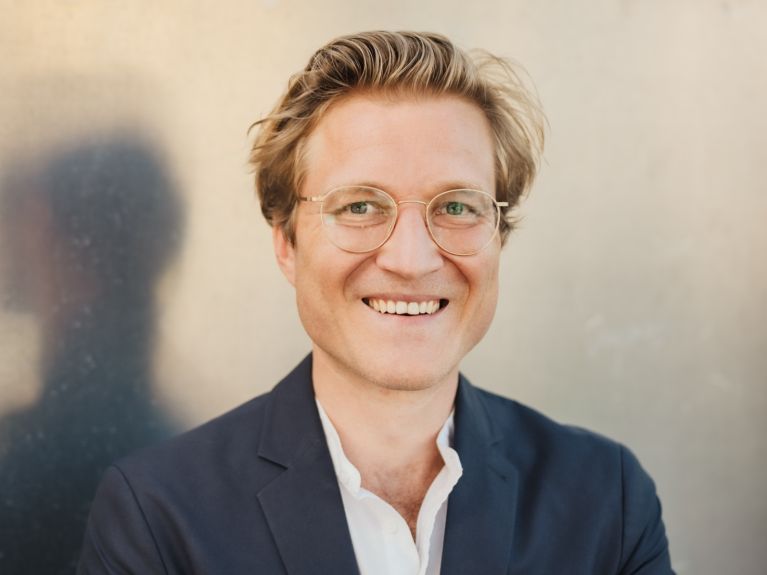On TikTok and on market squares
How science reaches people: Benedikt Fecher from “Wissenschaft im Dialog” talks about communication about research on social media and in the analogue world.

Mr Fecher, your goal at “Wissenschaft im Dialog” (Science in Dialogue) is to also reach people who are outside the academic bubble. Is that working?
Yes, I think it is. One example is the MS Wissenschaft - a converted riverboat that we and the German research ministry send off on tour every summer. This year it has been touring since mid-May, featuring an interactive exhibition and lots of hands-on activities relating to the Science Year 2025 theme of “Energy of the Future”. We also go out and meet people on market squares, organise discussion events and present awards to YouTubers who inform people about their research in an exemplary manner.
We must not leave the digital world to those who communicate aggressively or whose content is completely devoid of facts.
Are social media more of a blessing or a curse for science communication?
Both. We must not leave the digital world to those who communicate aggressively or whose content is completely devoid of facts. Social media are the market squares of the online world; if we disregard them, we will be ignoring large parts of society. I am calling for example for a large-scale initiative, an additional social media initiative, that would see us use short videos to target young people in particular, on TikTok for instance.
People keep saying that science needs to be communicated more broadly to society. However, on social media we are dealing with all kinds of different target groups on different platforms. So how are we supposed to achieve this?
It was never about reaching out to “the public” - as if there were just one. There are many different “publics” with their own different needs. Equally, there is not just one “science”, but a huge diversity in terms of disciplines and institutions. Good science communication acknowledges this diversity and develops appropriate formats. This also increases the impact of scientific knowledge in society and helps science to be transferred into practice.
What defines good science communication?
It should be taken for granted as an integral part of scientific work. It is not about every single researcher communicating about their work - public impact is not the central focus when conducting pure basic research. However, communication and the creation of social relevance should be seen as a joint responsibility for researchers, and the diversity of society and science should be taken seriously.
Expert in open science
Dr Benedikt Fecher is an expert in open science and science communication. Since April 2023 he has headed the non-profit organisation “Wissenschaft im Dialog” (WiD). WiD was established by leading German science organisations in 2000 with the aim of fostering dialogue between science and society and further developing science communication in Germany.
This interview was conducted in cooperation with the DAAD, and a longer version of the conversation can be found here.


